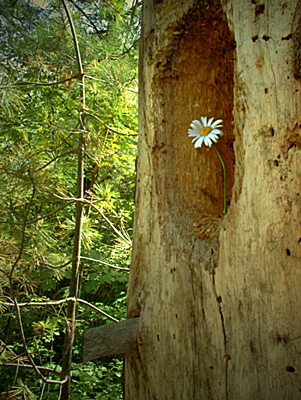All Nonfiction
- Bullying
- Books
- Academic
- Author Interviews
- Celebrity interviews
- College Articles
- College Essays
- Educator of the Year
- Heroes
- Interviews
- Memoir
- Personal Experience
- Sports
- Travel & Culture
All Opinions
- Bullying
- Current Events / Politics
- Discrimination
- Drugs / Alcohol / Smoking
- Entertainment / Celebrities
- Environment
- Love / Relationships
- Movies / Music / TV
- Pop Culture / Trends
- School / College
- Social Issues / Civics
- Spirituality / Religion
- Sports / Hobbies
All Hot Topics
- Bullying
- Community Service
- Environment
- Health
- Letters to the Editor
- Pride & Prejudice
- What Matters
- Back
Summer Guide
- Program Links
- Program Reviews
- Back
College Guide
- College Links
- College Reviews
- College Essays
- College Articles
- Back
Little Changes= Big Difference
Nine hundred and five. Nine hundred and five species are non-existent. Nine hundred and five species have been diminished. Nine hundred and five species will never roam the face of the earth again. Gone. Because of us.
Endangered Species International said that in 2006, seven hundred eighty four species were already extinct. That means in just six years, one hundred twenty-one species were annihilated. According to the International Union for Conservation of Nature (IUCN), the number of species known to be threatened by extinction has topped 16,928! However, this number may be way underestimated, because only about 3% of the world’s 1.9 million species have been assessed for this particular list. One in four mammals and one in eight birds have a high risk of extinction. One in three amphibians and almost half of all tortoises and freshwater turtles are threatened.
Why does it even matter if Hirola or Vaquita are no longer existent? I doubt many even know about the highly threatened antelopes in Africa or the smallest marine cetacean, because these animals are so rare Microsoft Word doesn’t even include them in the dictionary. Every animal, no matter how unknown or unimportant, plays a key role in our everyday life. The monetary value of goods and services provided by ecosystems is about 33 trillion dollars per year, claims the IUCN. That’s nearly twice the global production from human activities!
What can we do? It’s much more economical and effective to protect a habitat in the first place, but it’s never too late to conserve wildlife! The first step is to protect areas and restore habitats. Limiting the use of pesticides and chemical pollutants is key. After enforcing agreements, creating incentives for conserving wildlife, assessing the biodiversity and impact and developing a conservation management and building, captive breeding and reintroduction takes place. All of that sounds complicated right? Maybe you can’t develop your own staff and building. Maybe you can’t fly all the way to some tropical rainforest and personally protect the monkey-with-a-really-long-scientific-Latin-name-that-no-one-knows. You don’t farm, so you don’t use pesticides, so there’s nothing you can do.
Some would encourage you to fly to that rainforest and help the monkey, some would just tell you to get off Facebook. I’m telling you neither. That’s right you don’t even have to get out of your chair. Many organizations have online donations or donations via text message. Any amount of money makes a difference. You don’t even have to donate money… you can now create a free Facebook page and have all of your friends like it! Spreading the word has become even easier as technology has grown. Unfortunately, so has making species extinct. Spread the word, help the animals, and give back what they have provided for you… you don’t even have to get up out of the computer chair.

Similar Articles
JOIN THE DISCUSSION
This article has 1 comment.

4 articles 0 photos 12 comments
Favorite Quote:
"...you'll do less damage."<br /> "I'll damage you if you don't shut up!" <br /> -Sabine Wren and Ezra Bridger (Star Wars Rebels)